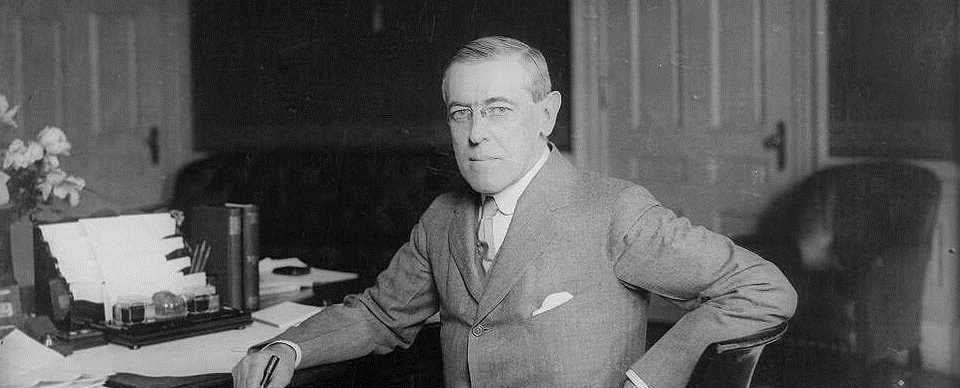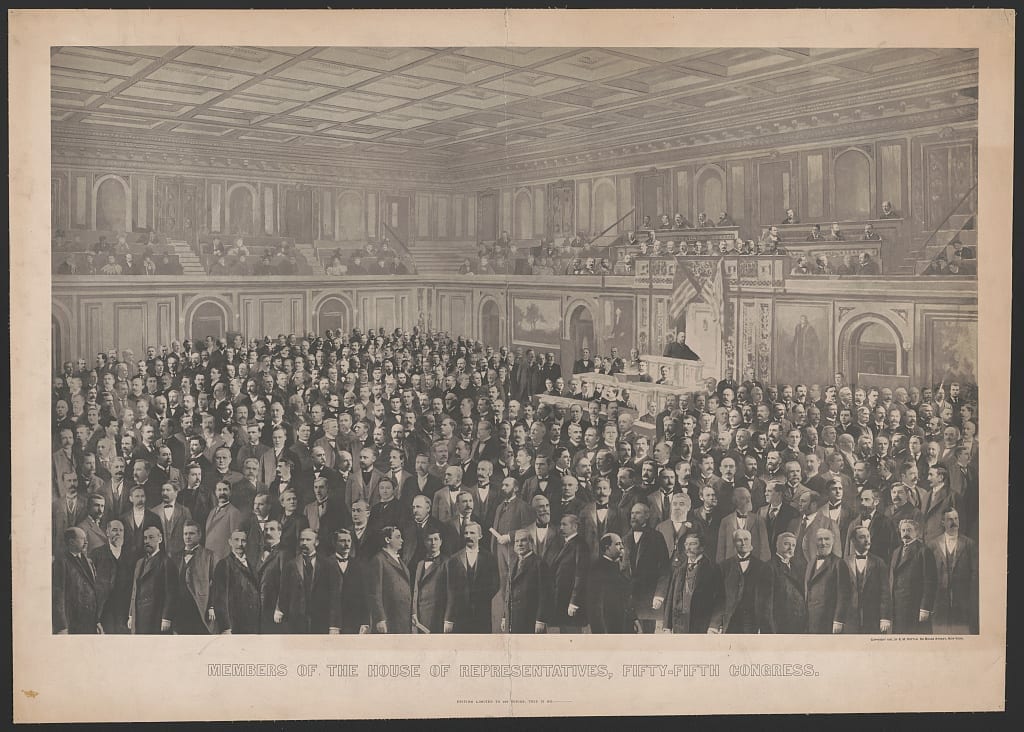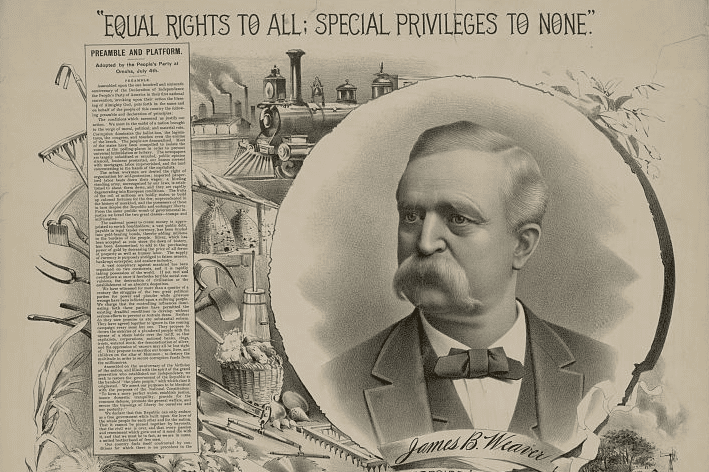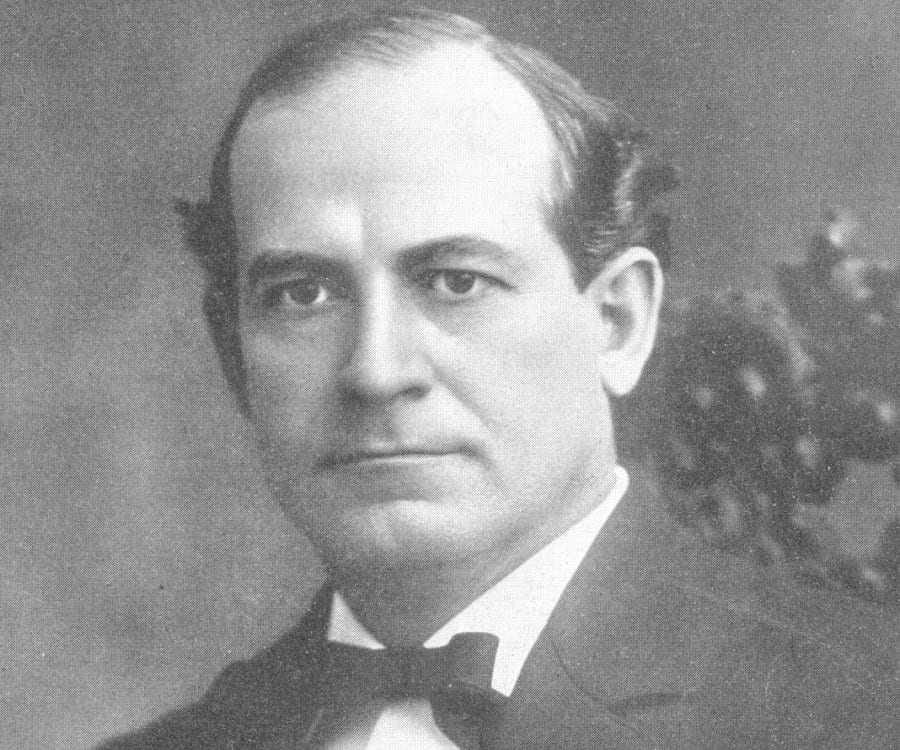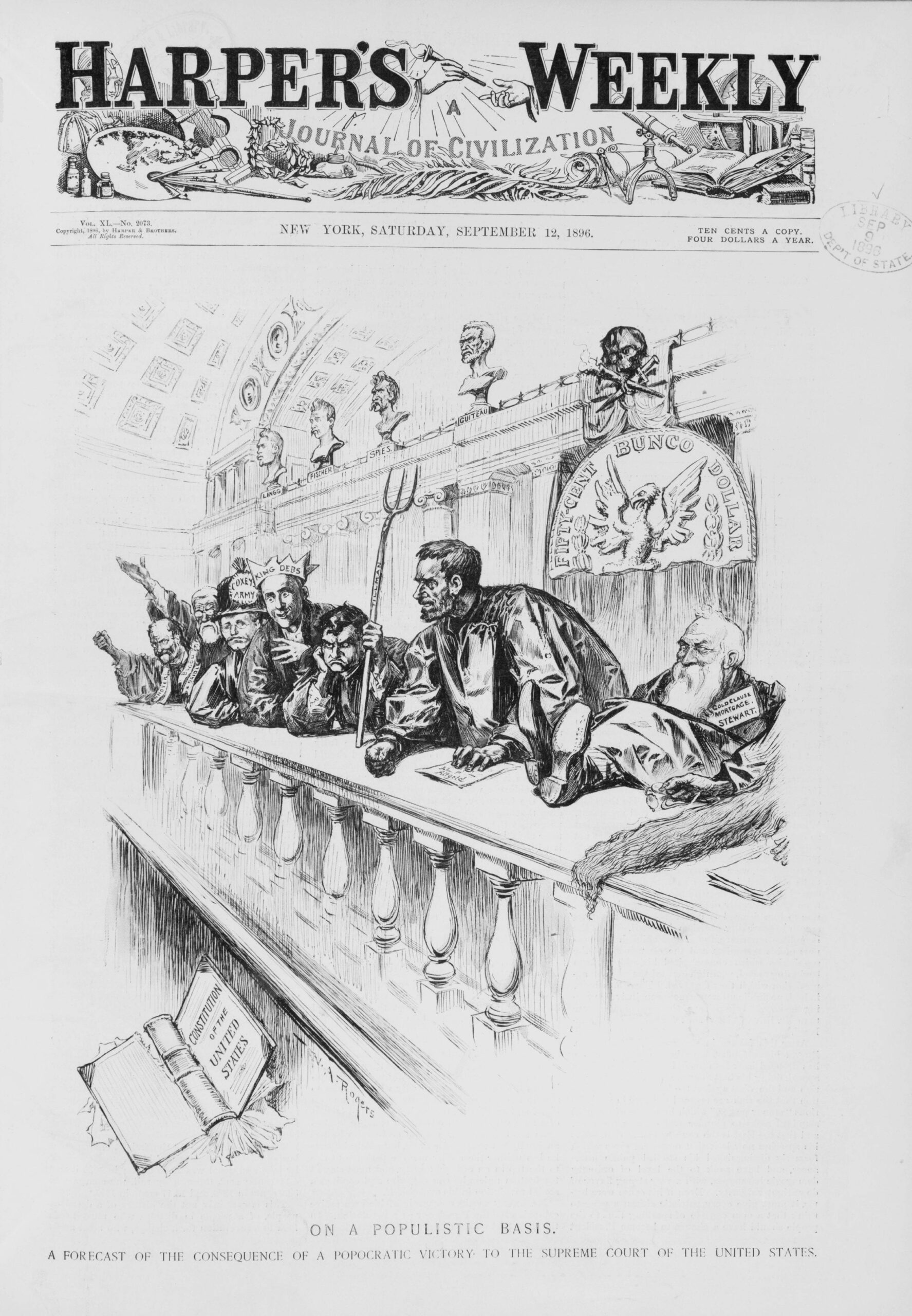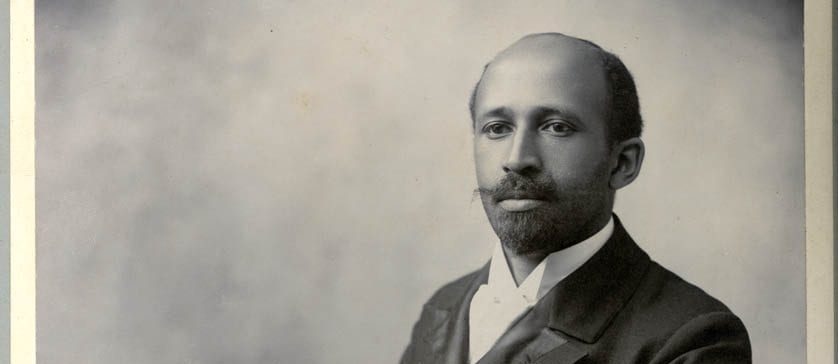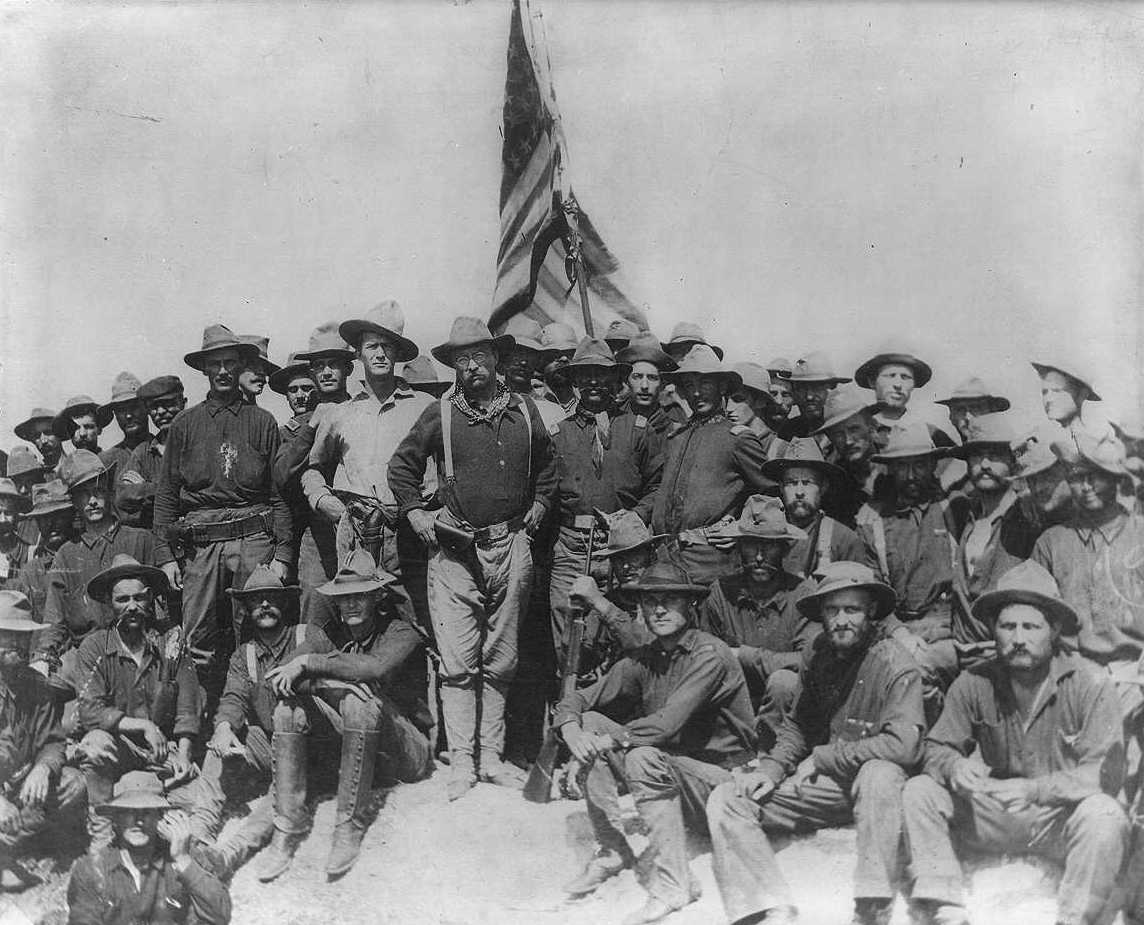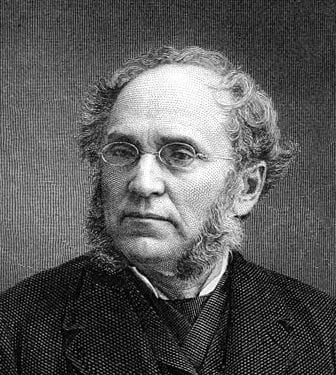
No related resources
Introduction
Edward L. Youmans (1821–1887), who founded Popular Science Monthly in 1872, was a tireless promoter and popularizer of scientific ideas. In this article, he explains the significance of Herbert Spencer (1820–1903), a British writer who developed a comprehensive account of man, society and nature based on the idea of evolution, the gradual development of more complex forms from simpler elements. As Youmans explains, this was a revolutionary idea, challenging longstanding Biblical ideas of the creation and God’s relation to mankind. Youmans argued that Spencer’s development of the principle of evolution not only predated Darwin’s, but was both more comprehensive and more fundamental.
Spencer, who invented the term “survival of the fittest,” had broad influence in the United States. His emphasis on development through time helped make “progress,” a term that, with its cognates, occurred frequently in Youmans’s article, the fundamental principle of political and social thought. As Youmans points out, applying the concepts of evolution and “survival of the fittest” to human beings leads to the idea of “divergent varieties of man, some of them higher than others.” This kind of thinking was a direct inspiration for the eugenics movement in the United States. This movement, in turn, affected popular opinion and law. In 1927, in Buck v. Bell, the Supreme Court ruled that Virginia had the right to sterilize its “feeble minded” citizens. Justice Holmes, who wrote the opinion (only one justice dissented), was influenced by Spencer, as was the Chief Justice William Howard Taft. Holmes remarked in his opinion that “Three generations of imbeciles are enough.”
A Lecture delivered before the New York Liberal Club
The change that has taken place in the world of thought within our own time, regarding the doctrine of Evolution, is something quite unprecedented in the history of progressive ideas. Twenty years ago that doctrine was almost universally scouted as a groundless and absurd speculation; now, it is admitted as an established principle by many of the ablest men of science, and is almost universally conceded to have a basis of truth, whatever form it may ultimately take. It is, moreover, beginning to exert a powerful influence in the investigation of and mode of considering many subjects; while those who avow their belief in it are no longer pointed at as graceless reprobates or incorrigible fools.
With this general reversal of judgment regarding the doctrine, and from the prominence it has assumed as a matter of public criticism and discussion, there is naturally an increasing interest in the question of its origin and authorship; and also, as we might expect, a good deal of misapprehension about it. The name of Herbert Spencer has been long associated, in the public mind, with the idea of Evolution.… That the system of doctrine put forth by Mr. Spencer would meet with strong opposition was inevitable. Representing the most advanced opinions, and disturbing widely-cherished beliefs at many points, it was natural that it should be strenuously resisted and unsparingly criticized. Nor is this to be regretted, as it is by conflict that truth is elicited.…
And, first, let us glance at the general condition of thought in relation to the origination of things when he began its investigation. Character is tested by emergencies, as well in the world of ideas as in the world of action; and it is by his bearing in one of the great crises of our progressive knowledge of Nature that Mr. Spencer is to be measured.
Down to the early part of the present century it had generally been believed that this world, with all that it contains, was suddenly called into existence but a few thousand years ago in much the same condition as we now see it. Throughout Christendom it was held, with the earnestness of religious conviction, that the universe was a Divine manufacture, made out of nothing in a week, and set at once to running in all its present perfection. This doctrine was something more than a mere item of faith; it was a complete theory of the method of origin of natural things, and it gave shape to a whole body of science, philosophy, and common opinion, which was interpreted in accordance with this theory. The problem of origins was thus authoritatively solved, and life, mind, man, and all Nature, were studied under the hypothesis of their late and sudden production.
But it was difficult to inquire into the existing order of Nature without tracing it backward. Modern science was long restrained from this procedure by the power of traditional beliefs, but the force of facts and reasoning at length proved too strong for these beliefs, and it was demonstrated that the prevailing notion concerning the recent origin of the world was not true. Overwhelming evidence was found that the universe did not come into existence in the condition in which we now see it, nor in any thing like that condition, but that the present order of things is the outcome of a vast series of changes running back to an indefinite and incalculable antiquity. It was proved that the present forms and distributions of mountains, valleys, continents, and oceans, are but the final terms of a stupendous course of transformations to which the crust of the earth has been subjected. It was also established that life has stretched back for untold millions of years; that multitudes of its forms arose and perished in a determinate succession, while the last appearing are highest in grade, as if by some principle of order and progression.
It is obvious that one of the great epochs of thought had now been reached; for the point of view from which natural things are to be regarded was fundamentally and forever altered. But, as it is impossible to escape at once and completely from the dominion of old ideas, the full import of the position was far from being recognized, and different classes of the thinking world were naturally very differently affected by the new discoveries. To the mass of people who inherit their opinions and rarely inquire into the grounds upon which they rest, the changed view was of no moment; nor had the geological revelations much interest to the literary classes beyond that of bare curiosity about strange and remote speculations. To the theologians, however, the step that had been taken was of grave concern. They were the proprietors of the old view; they claimed for it supernatural authority, and strenuously maintained that its subversion would be the subversion of religion itself.
They maintained, moreover, that the controversy involved the very existence of God. The most familiar conception of Deity was that of a Creator, and creation was held to mean the grand six-day drama of calling the universe into existence; while this transcendent display of power had always been devoutly held as alike the exemplification and the proof of the Divine attributes. How deep and tenacious was the old error is shown by the fact that, although it has been completely exploded, although the immeasurable antiquity of the earth and the progressive order of its life have been demonstrated and admitted by all intelligent people, yet the pulpit still clings to the old conceptions, and the traditional view is that which generally prevails among the multitude.
…The traditional explanation of the origin of the world, and all that belongs to it, being thus discredited, it only remained to seek another explanation: if it has not been done one way, how has it been done? was the inevitable question. One might suppose that the effect of the utter break-down of the old hypothesis would have been to relegate the whole question to the sphere of science, but this was far from being done. The preternatural solution had failed, but its only logical alternative, a natural solution, or the thorough investigation of the subject on principles of causation, was not adopted or urged. The geologists occupied themselves in extending observations and accumulating facts rather than in working out any comprehensive scientific or philosophical principles from the new point of view. The result was a kind of tacit compromise between the contending parties—the theologians conceding the vast antiquity of the earth, and the geologists conceding preternatural intervention in the regular on-working of the scheme; so that, in place of one mighty miracle of creation occurring a few thousand years ago, there was substituted the idea of hundreds of thousands of separate miracles of special creation scattered all along the geological ages, to account for the phenomena of terrestrial life. Two systems of agencies—natural and supernatural—were thus invoked to explain the production of effects. What it now concerns us to note is, that the subject had not yet been brought into the domain of science. One portion of it was still held to be above Nature, and therefore inaccessible to rational inquiry; while that part of the problem which was withheld from science was really the key to the whole situation. Under the new view, the question of the origin of living forms, or of the action of natural agencies in their production, was as completely barred to science as it had formerly been under the literal Mosaic interpretation; and, as questions of origin were thus virtually interdicted, the old traditional opinions regarding the genesis of the present constitution of things remained in full force.
It is in relation to this great crisis in the course of advancing thought that Herbert Spencer is to be regarded. Like many others, he assumed, at the outset, that the study of the whole phenomenal sphere of Nature belongs to science; but he may claim the honor of being the first to discern the full significance of the new intellectual position. It had been proved that a vast course of orderly changes in the past has led up to the present, and is leading on to the future: Mr. Spencer saw that it was of transcendent moment that the laws of these changes be determined. If natural agencies have been at work in vast periods of time to bring about the present condition of things, he perceived that a new set of problems of immense range and importance is open to inquiry, the effect of which must be to work an extensive revolution of ideas. It was apparent to him that the hitherto forbidden question as to how things have originated had at length come to be the supreme question. When the conception that the present order had been called into being at once and in all its completeness was found to be no longer defensible, it was claimed that it makes no difference how it originated—that the existing system is the same whatever may have been its source. Mr. Spencer saw, on the contrary, that the question how things have been caused is fundamental; and that we can have no real understanding of what they are, without first knowing how they came to be what they are. Starting from the point of view made probable by the astronomers, and demonstrated by the geologists, that, in the mighty past, Nature has conformed to one system of laws; and assuming that the existing order, at any time, is to be regarded as growing out of a pre-existing order, Mr. Spencer saw that nothing remained for science but to consider all the contents of Nature from the same point of view. It was, therefore, apparent that life, mind, man, science, art, language, morality, society, government, and institutions, are things that have undergone a gradual and continuous unfolding, and can be explained in no other way than by a theory of growth and derivation. It is not claimed that Mr. Spencer was the first to adopt this mode of inquiry in relation to special subjects, but that he was the first to grasp it as a general method, the first to see that it must give us a new view of human nature, a new science of mind, a new theory of society—all as parts of one coherent body of thought, and that he was, moreover, the first to work out a comprehensive philosophical system from this point of inquiry, or on the basis of the principle of Evolution. In a word, I maintain Spencer’s position as a thinker to be this: taking a view of Nature that was not only generally discredited, but was virtually foreclosed to research, he has done more than any other man to make it the starting-point of a new era of knowledge.
For the proof of this I now appeal to his works.…
By reading various books upon moral philosophy he had become dissatisfied with the basis of morality which they adopt; and it became clear to him that the question of the proper sphere of government could be dealt with only by tracing ethical principles to their roots. The plan of this work was formed while Mr. Spencer was still a civil-engineer; and it was commenced in 1848, before he abandoned engineering and accepted the position of sub-editor of the Economist. It was issued, under the title of Social Statics, at the close of 1850.… It will be seen that the conception that there is an adaptation going on between human nature and the social state has become dominant. There is the idea that all social evils result from the want of this adaptation, and are in process of disappearance as the adaptation progresses. There is the notion that all morality consists in conformity to such principles of conduct as allow of the life of each individual being fulfilled, to the uttermost, consistently with the fulfillment of the lives of other individuals; and that the vital activities of the social human being are gradually being molded into such form that they may be realized to the uttermost without mutual hindrance. Social progress is in fact viewed as a natural evolution, in which human beings are molded into fitness for the social state, and society adjusted into fitness for the natures of men, the units and the aggregate perpetually acting and reacting, until equilibrium is reached. There is recognized not only the process of continual direct adaptation of men to their circumstances by the inherited modifications of habit, but there is also recognized the process of the dying out of the unfit and the survival of the fit. And these changes are regarded as parts of a process of general evolution, tacitly affirmed as running through all animate Nature, tending ever to produce a more complete and self-sufficing individuality, and ending in the highest type of man as the most complete individual.…
The inquiries thus commenced, together with those respecting the nature of the moral feelings, and those concerning life and development, bodily and mental, into which he had been led, both by Social Statics and the “Theory of Population,” prepared the way for the Principles of Psychology. Some of the fundamental conceptions contained in this remarkable work now began to take shape in his mind. Other ideas connected with the subject began also to form in his mind, an example of which is furnished by the essay on “Manners and Fashion,” published in the Westminster Review (April, 1854). Various traits of the general doctrine of Evolution are here clearly marked out in their relations to social progress. It is shown that the various forms of restraint exercised over men in society—political, ecclesiastical, and ceremonial—are all divergent unfoldings of one original form, and that the development of social structure, in these as in other directions, takes place by gradual and continuous differentiations, “in conformity with the laws of Evolution of all organized bodies.”
…The article “Progress, its Law and Cause”… was written early in 1857.… It is further argued that the new relations in which animals would be placed toward one another would initiate further differences of habit and consequent modifications, and that “there must arise, not simply a tendency toward the differentiations of each race of organisms into several races, but also a tendency to the occasional production of a somewhat higher organism.” The case of the divergent varieties of man, some of them higher than others, caused in this same manner, is given in illustration. Throughout the argument there is a tacit implication that, as a consequence of the cause of Evolution, the production of species will go on, not in ascending linear series, but by perpetual divergence and redivergence—branching and again branching. The general conception, however, differs from that of Mr. Darwin in this—that adaptation and re-adaptation to continually changing conditions is the only process recognized. There is no recognition of “spontaneous variations,” and the natural selection of those that are favorable.…
In October of the same year, the essay on “Representative Government—What Is It Good For?” appeared in the Westminster Review. The law of progress is here applied to the interpretation of state functions, and it is stated that the specialization of offices, “as exhibited in the Evolution of living creatures, and as exhibited in the Evolution of societies,” holds throughout; that “the governmental part of the body politic exemplifies this truth equally with its other parts.” In January, 1858, the essay on “State Tamperings with Money and Banks” appeared in the same periodical. The general doctrine of the limitations of state functions is there reaffirmed, with further illustration of the mischiefs that arise from traversing the normal laws of life; and it is contended that “the ultimate result of shielding men from the effects of folly is to fill the world with fools”—an indirect way of asserting the beneficial effects of the survival of the fittest.…
We have now passed in rapid review the intellectual work of Mr. Spencer for nearly twenty years, and have shown that, though apparently miscellaneous, it was, in reality, of a highly methodical character. Though treating of many subjects, he was steadily engaged with an extensive problem which was resolved, step by step, through the successive discovery of those processes and principles of Nature which constitute the general law of Evolution. Beginning in 1842 with the vague conception of a social progress, he subjected this idea to systematic scientific analysis, gave it gradually a more definite and comprehensive form, propounded the principles of heredity and adaptation in their social applications, recognized the working of the principle of selection in the case of human beings, and affiliated the conception of social progress upon the more general principle of Evolution governing all animate Nature. Seizing the idea of increasing heterogeneity in organic growth, he gradually extended it in various directions. When the great conception, thus pursued, had grown into a clear, coherent, and well-defined doctrine, he took up the subject of psychology, and, combining the principle of differentiation with that of integration, he placed the interpretation of mental phenomena upon the basis of Evolution. We have seen that two years after the publication of the “Psychology,”1 or in 1857, Mr. Spencer had arrived at the law of Evolution as a universal principle of Nature, and worked it out both inductively as a process of increasing heterogeneity and deductively from the principles of the instability of the homogeneous and the multiplication of effects. How far Mr. Spencer was here in advance of all other workers in this field will appear, when we consider that the doctrine of Evolution, as it now stands, was thus, in its universality, and in its chief outlines, announced by him two years before the appearance of Mr. Darwin’s “Origin of Species.”
A principle of natural changes more universal than any other known, applicable to all orders of phenomena, and so deep as to involve the very origin of things, having thus been established, the final step remained to be taken, which was, to give it the same ruling place in the world of thought and of knowledge that it has in the world of fact and of Nature. A principle running through all spheres of phenomena must have the highest value for determining scientific relations; and a genetic law of natural things must necessarily form the deepest root of the philosophy of natural things. It was in 1858, as Mr. Spencer informs me, while writing the article on the “Nebular Hypothesis,” that the doctrine of Evolution presented itself as the basis of a general system under which all orders of concrete phenomena should be generalized. Already the conception had been traced out in its applications to astronomy, geology, biology, psychology, as well as all the various super-organic products of social activity; and it began to appear both possible and necessary that all these various concrete sciences should be dealt with in detail from the Evolution point of view. By such treatment, and by that only, did it appear practicable to bring them into relation so as to form a coherent body of scientific truth—a System of Philosophy.…
The facts now presented, I submit, entirely sustain the view with which we set out, in regard to the character of Mr. Spencer’s work, and his position in the world of thought. It has been shown that he took up the idea of Progress while it was only a vague speculation, and had not yet become a subject of serious scientific study.… In newness of conception, unity of purpose, subtlety of analyses, comprehensive grasp, thoroughness of method, and sustained force of execution, this series of labors, I believe, may challenge comparison with the highest mental work of any age.
As to the character of the system of thought which Mr. Spencer has elaborated, we have shown that it is such as to form an important epoch in the advance of knowledge. He took up an idea not yet investigated nor entertained by his predecessors or contemporaries, and has made it the corner-stone of a philosophy. If, by philosophy, we understand the deepest explanation of things that is possible to the human mind, the principle of genesis or Evolution certainly answers preeminently to this character; for what explanation can go deeper than that which accounts for the origin, continuance, and disappearance of the changing objects around us? It is the newest solution of the oldest problem; a solution based alike upon the most extended knowledge, and upon a reverent recognition that all human investigation, however extensive, must have its inexorable bounds. The philosophy of Evolution is truly a philosophy of creation, carried as far as the human mind can penetrate. If man is finite, the infinite is beyond him; if finite, he is limited, and his knowledge, and all the philosophy that rests upon knowledge, must be also limited. Philosophy is a system of truth pertaining to the order of Nature, and coextensive with it; and, as the various sciences are but the knowledge of the different parts of Nature, Mr. Spencer bases philosophy upon science, and makes it what may be called a science of the sciences. Resting, moreover, upon a universal law, which governs the course and changes of all phenomena, this philosophy becomes powerful to unify and harmonize the hitherto separate and fragmentary systems of truth; and, as this is the predominant trait of Mr. Spencer’s system of thought, he very properly denominates it the Synthetic Philosophy. 2…
It is desirable to add a word or two regarding Mr. Darwin’s relation to the question. While he has contributed immensely toward the extension and establishment of a theory of organic development, he has never made even an attempt to elucidate the law of Evolution as a general principle of Nature. His works do not treat of this problem at all, and nothing has tended more to the popular confusion of the subject than the notion that “Darwinism” and Evolution are the same thing. Mr. Darwin’s fame rests chiefly upon the skill and perseverance with which he has worked out a single principle in its bearing upon the progressive diversity of organic life. The competitions of Nature leading to a struggle for existence, and that consequent winnowing which Mr. Darwin calls “Natural Selection,” and Mr. Spencer calls “Survival of the Fittest,” were recognized before Mr. Darwin’s time: what he did, as I have before explained, was to show how this principle may aid in giving rise to new species from preexisting species. But this principle is secondary and derivative, and its operation may be traced, as Mr. Darwin has traced it, without going back to those primary forces, the resolution of which constitutes the radical problem of Evolution.
The principle which Mr. Darwin promulgated is a part of the great theory, and it has a philosophic importance, exactly in proportion to the validity of that larger system of doctrine to which it is tributary as an element. Not only has Mr. Darwin never taken up the question of Evolution from a scientific point of view, but it was not his aim to explain even the evolution of species in terms of ultimate principles, as a part of the universal transformation—that is, in terms of the redistribution of matter and motion; for it is in this way that all proximate principles, including Natural Selection, have to be expressed before the final interpretation is reached. This mode of dealing with the subject, the only thoroughly scientific method of its treatment, belongs to Mr. Spencer alone. As to his following Mr. Darwin, we have already seen that, two years before the Origin of Species was published, Mr. Spencer had reached the proof of Evolution as a universal law; had traced its dependence upon the principle of the Conservation of Force; had resolved it into its ultimate dynamical factors; had worked out many of its important features; had made it the basis of a system of Philosophy; and had shown that it furnishes a new starting-point for the scientific interpretation of human affairs.
- 1. The Principles of Psychology, 1855.
- 2. A System of Synthetic Philosophy, published in ten volumes between 1862 and 1893, was Spencer’s summative work, comprised of his First Principles—that is, an explanation of his theory of the evolution of all natural phenomena—an expanded version of his already-published Principles of Psychology, and additional volumes on biology, sociology, and morality.
An Oration in Memory of Abraham Lincoln
April 14, 1876
Conversation-based seminars for collegial PD, one-day and multi-day seminars, graduate credit seminars (MA degree), online and in-person.













